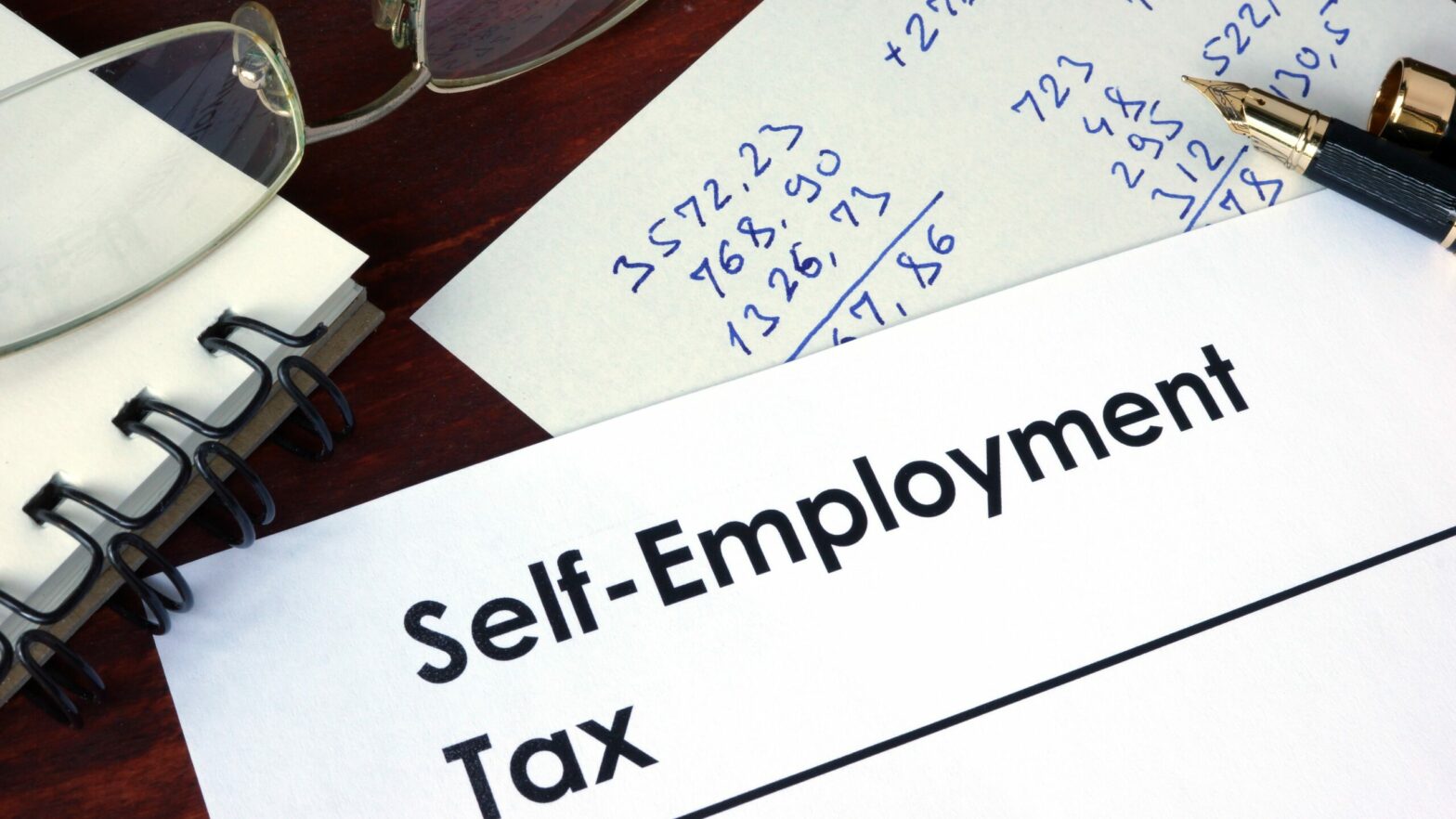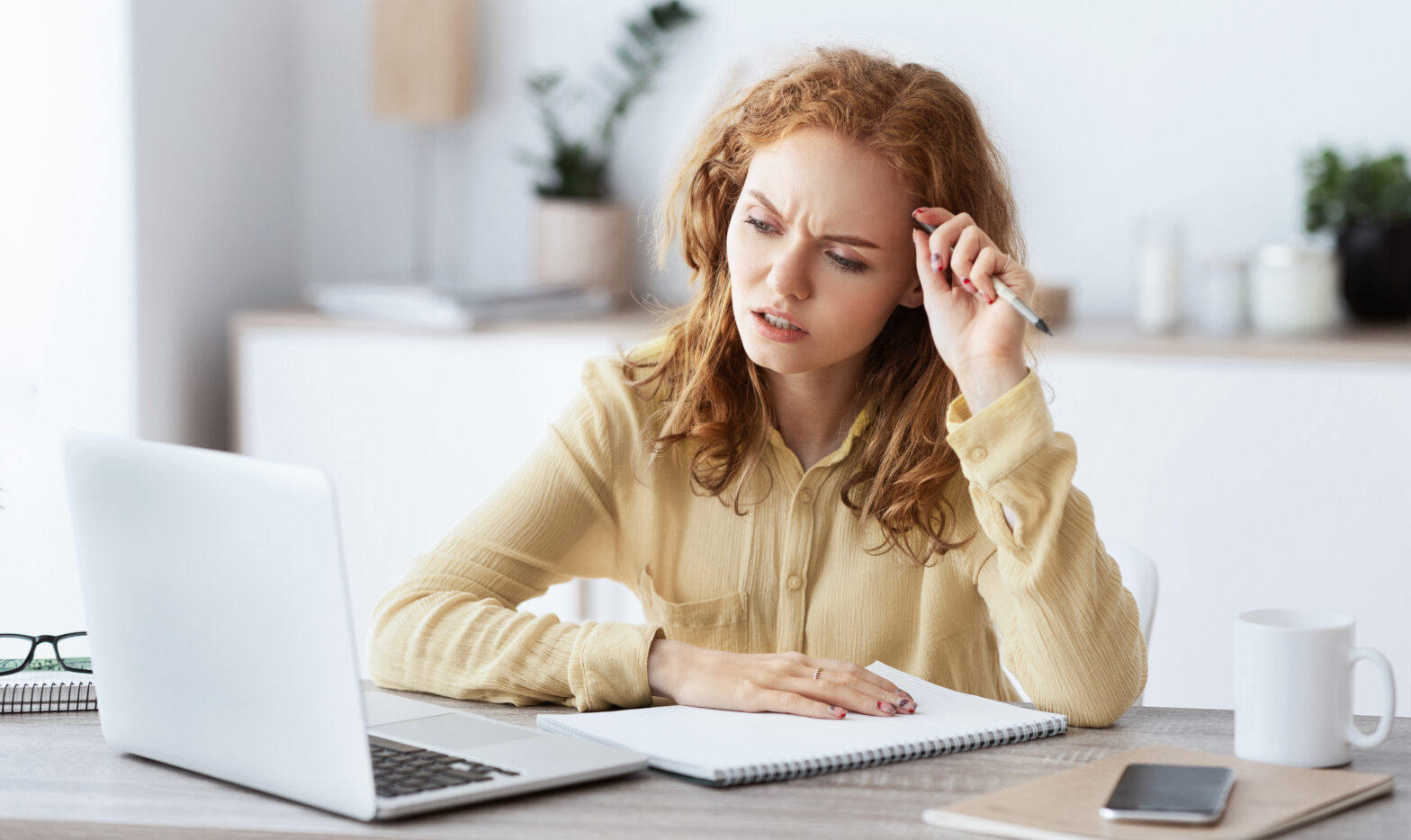What’s worse when you’re self-employed? Having to pay your tax bill, or making a mistake and finding out you’ve overpaid?
Filing your small business taxes each year does not have to be stressful or painful. Tax can be a bit of a headache for anyone in business, and for the self-employed, it’s no different. The danger of getting taxed wrongly could mean submitting tax returns late, incorrectly, or not at all, leading to some hefty penalties and time-consuming investigations from HMRC.
>See also: How the newly self-employed should navigate the complex SEISS process
However, if you make sure to do little bits of work throughout the year, filing your taxes can be quite straightforward.
5 most common tax mistakes when you’re self-employed
Some stresses are easily avoidable. Make sure to avoid these 5 common tax return mistakes that many self-employed people make:
#1 – Not registering for self-assessment
If you earn more than £1,000 from one or more trades, you must register with HMRC. People commonly confuse this with the basic personal allowance and believe they do not need to register with HMRC unless they earn over a certain threshold.
This, however, isn’t the case.
Everyone is entitled to earn a certain amount of money without paying income tax. This is called the personal allowance and is £12,500 for the 2020/21 tax year. The important thing to know is that even if you earn below the personal allowance threshold, you still need to declare your earnings to HMRC.
Even if you are working for an employer, your self-employment taxes won’t be deducted from your salary automatically so you will need to tell HMRC exactly how much you’ve earned in the tax year and then pay them directly.
To do this, you need to make sure you have registered as self-employed, so you will be able to file your self-assessment tax return.
There are deadlines for registering and submitting your tax return so you will need to make sure that you meet these deadlines to avoid large penalties and fines. The deadline for telling HMRC that you are self-employed is October 5
#2 – Not submitting a self-assessment tax return on time
One of the biggest mistakes that self-employed people make is not returning or forgetting to return their self-assessment tax return on time. The deadline for submitting your online self-assessment tax return and paying any tax owed is midnight on January 31 each year. However, if you file a paper tax return, bear in mind the deadline is 31 October each year.
If you miss a self-assessment deadline, you can attract two different penalties. The first is if you are late filing your personal tax return and the second is if you are late paying for your personal tax.
If you are late filing:
- You receive an automatic £100 fine if you are late by one day
- You receive a further £10 fine per day you are late up to a maximum of £900 (90 days) if you are over three months late
- You receive an additional £300 fine or 5 per cent of the tax owed (whichever is greater) if you are over six months late
- You receive another £300 fine or 5 per cent of the tax owed (whichever is greater) if you are over 12 months late
If you are late paying for your personal tax:
- You receive a 5 per cent charge on the tax you owe if you are 30 days late.
- You receive another 5 per cent charge on the tax you owe if you are 6 months late.
- You receive a final additional 5 per cent charge on the tax you owe if you are 12 months late
In addition to the fines, you will also be charged 3 per cent interest on the tax owed if it has not been paid by the deadline, including amounts accumulated in charges. This means that the costs can quickly add up, resulting in significant fines. The same fine regime is applied to the paper submissions.
However, this does mean that if you miss the paper submission deadline, you still have the opportunity to submit online to avoid any fines.
>See also: Self-employed should pay equal tax with employees, says top thinktank
#3 – Not saving for tax
Another big mistake that self-employed people make is failing to save for their tax bill. It can sometimes be a massive shock, especially if you have forgotten to factor in National Insurance Contributions. It can be tough to try and scrape it all together at the last minute if you haven’t saved for it throughout the year.
The best thing to do is set aside a percentage of everything you make as you earn it. Create a separate savings account and move your tax money into it every month and make sure not to touch it. When the tax deadline comes, you won’t worry about finding the money to pay your tax bill as it will already be there.
#4 – Misreporting income
Misreporting income is another mistake that self-employed people make. Many people face penalties and tax surcharges for mistakes made every year throughout the UK due to negligence or delivering incomplete financial records to their accountants. This is something that often happens if you don’t keep track of your earnings. You should make sure to keep and record all receipts and invoices for everything throughout the tax year. If you are claiming back expenses, HMRC might ask for evidence of this. By keeping a good record, it will help you account for everything and avoid any possible misreporting.
There is a system of penalties for misreporting your income on your self-assessment tax return. What you’re charged with will depend on whether HMRC thinks you have just been careless or have purposely tried to lie about your earnings. Penalties are based on the amount of tax you owe and are payable in addition to the tax owed:
- If you have taken reasonable care to fill in your return correctly, you’ll have no penalty to pay
- If you have been careless, the penalty will be between 0 per cent and 30 per cent of the extra tax owing
- If you have deliberately underestimated your tax, the penalty is between 20 per cent and 70 per cent
- If you have deliberately underestimated your tax and attempted to conceal the fact, the penalty will be between 30 per cent and 100 per cent
If you realise that you’ve made a mistake on your self-assessment tax return, you can correct it for up to a year after the filing deadline via HMRC online or via your software provider. After this, you’ll need to write to HMRC to explain the circumstances and request a change.
#5 – Not paying national insurance contributions
National Insurance (NI) contributions help fund the UK’s welfare state. You will notice that NI contributions and income tax are usually taken together through PAYE or paid for together if you need to pay for these through a self-assessment tax return.
If you are self-employed, there are two types of national insurance that you usually pay. The class depends on how much you earn. For the 2020/21 tax year the different classes are:
- Class 2 if your profits are £6,475 or more a year.
- Class 4 if your profits are £9,501 or more a year.
To ensure you avoid fines and penalties when working as self-employed, you will need to pay national insurance. There are two ways in which you can pay NI when you are self-employed. The first way is to pay through your self-assessment tax return. However, if you don’t pay it this way, you also can pay voluntary contributions. You do this by logging onto the HMRC website.
Simon Thomas is managing director of Oxford-based chartered accountants Ridgefield Consulting
Further reading
Taxman gives self-employed more time to file your tax return





